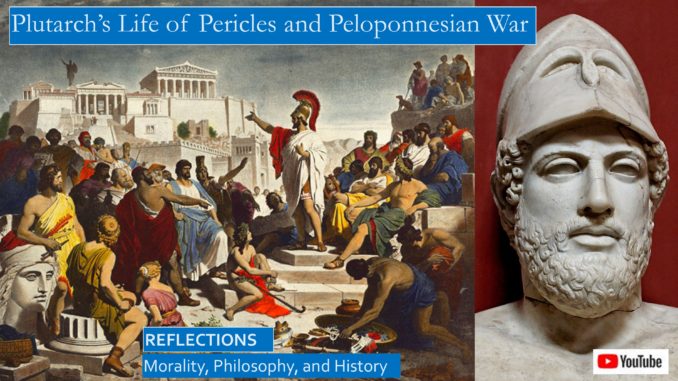
This is second video and blog where we examine both history and Plutarch’s moral biographies of the key Athenian leaders before and in the first years of the war. In the first video we reflected on Pericles and his reforms leading to the Radical Democracy of Athens in the years leading up to the war.
http://www.seekingvirtueandwisdom.com/thucydides-and-plutarch-pericles-and-the-radical-democracy-before-the-peloponnesian-wars/ and https://youtu.be/uhtGzfxVdzk
PERICLES AS GENERAL, WAR CLOUDS GATHER
Plutarch says, that “as a military commander, Pericles was famous chiefly for his caution. He was never prepared to join battle when there was considerable uncertainty and risk, nor did he admire and model himself on those commanders who were acclaimed as great, but who enjoyed brilliant good fortune at the risk of their own lives. He was constantly telling his fellow citizens that if it were up to him, they would remain immortal forever.”[1]
YouTube video for this blog: https://youtu.be/1ra58mg33nM
YouTube scripts with more book links: https://www.slideshare.net/BruceStrom1/thucydides-and-plutarch-pericles-and-the-beginning-of-the-peloponnesian-war
Link to view complete series of blogs on the Peloponnesian Wars:
https://seekingvirtueandwisdom.com/category/peloponnesian-wars/
Link to view complete series of videos on the Peloponnesian Wars:
https://www.youtube.com/watch?v=szi7-9QQWI0&list=PLJVlY2bjK8lg2pivnGN3m13VI8YstKs0T
Plutarch continues, “Pericles kept curbing the impetuosity and pruning the restlessness” of the citizenship. “He tried to divert most of their resources to guarding and securing what they already had.”[2] Plutarch tells us that Pericles was a competent but careful general, that because of his successful military campaigns, “Pericles showed his enemies that he was a man to be feared, and his fellow citizens that he was a man of action, and yet could keep them safe, because the troops who took part in the expedition suffered no setbacks even as a result of chance.”[3]
Will Durant speculates, “In 459 BC, Pericles, anxious to control Egyptian grain, sent a great fleet to expel the Persians from Egypt. The expedition failed, and thereafter Pericles adopted the policy of the Themistocles to win the world by commerce rather than war.”[4] This was a major defeat, the Athenians lost over two hundred triremes when the channel they had sailed into was drained, Thucydides notes that “this was the end of the great expedition against Egypt made by the Athenians and their Delian allies.”[5]
Professor Harl says the defeat in Egypt caused many problems for the Athenians, the apparent invincibility of the Delian navy was shattered. Sensing weakness, many city=states revolted, it took time to put down these rebellions. This led Pericles to avoid far-off entanglements.
Around 460 BC, Sparta experienced a severe earthquake which killed many of its citizens and soldiers. Some scholars speculate that Sparta never recovered from this population loss. The slave class of Sparta, the helots, and the free residents, the perioikoi, revolted at this time of crisis. The Athenian general Cimon suggested that an Athenian army offer their assistance to the Spartans. Like many aristocrats, he considered the Persians to be the enemy, not the Spartans. But it had been twenty years since the Greco-Persian Wars, memories were fading, and the Athenians had been triumphant against the Persians, adding their former Greek colonies back into the Delian League.
Soon after Cimon arrived in Sparta with his army, the Spartan Assembly got cold feet, fearing that Athenian democratic enthusiasm would infect the Spartans, so they asked Cimon and his army to return to Athens. This incident humiliated the Athenians and led to the ostracism of Cimon. From this time forward, the Athenians were more hostile towards Sparta.
About this time, the Greek city-state of Megara, which controlled the key mountain passes from the Peloponnese to Attica, faced a conflict with Corinth, appealed to Sparta for assistance. But Sparta was total distracted by the destruction of the earthquake and the resulting helot slave revolt. Sparta did not devote the attention needed to the Megarians, who surprisingly sought to join the Athenian Delian League. Some years later they revolted against the Athenians, who then retaliated with Megarian Decree in 432 BC, placing a near-total embargo on Megara, they then appealed to Sparta, and this was another cause of the war. We know this embargo was effective, because, in his comic plays, the comic poet Aristophanes constantly refers to the starving Megarians.[6]
Later, when Euboea revolted from Athens, Pericles sailed over to the island with an Athenian army. Then he received news that the Megara had revolted and that the Spartan Peloponnese Army were in the point of invading Attica. The Athenians under Pericles defeated first the Spartans, then the Euboeans. After these battles, the Thirty Years’ Peace was negotiated between Pericles and King Archidamus of Sparta in 460 BC, the peace that would be interrupted by the start of the Peloponnesian War.[7] Under this peace, Megara was readmitted back into the Peloponnesian League lead by Sparta, which was important because Megara controlled the mountain passes leading into Attica.[8]
If you look on the map, the city of Corinth is located on the narrow piece of land that is the gateway into the Peloponnese, with both eastern and western ports. Corinth and Sparta were allies, as there are always tensions between the Corinthians and also the Athenians.
Will Durant tells us, “It is probable that Pericles, who had not hesitated to conquer the island of Aegina, had dreamed of completing Athens’ control of Greek trade by dominating not only Megara but Corinth, which was to Greece what Istanbul is to the eastern Mediterranean today, a door and key to half a continent’s trade. But the basic law of war was the growth of the Athenian empire and the development of Athenian control over the commercial and political life of the Aegean. Athens allowed free trade there in time of peace but only by imperial sufferance, no vessel might sail that see without her consent will.”[9]
Will Durant continues, “The resistance to Athenian policy came from nearly every state in Greece.” “Some subject cities, and others that feared to become subject, appealed to Sparta to check the Athenian power. The Spartans were not eager for war, knowing the strength and valor of the Athenian fleet;” “but the old but the Athenian custom of establishing in every city a democracy dependent upon the empire seemed to the landowning oligarchy of Sparta a threat to aristocratic government everywhere. For a time, the Spartans contented themselves with supporting the upper classes in every city, and slowly forging a united front against Athens.”
Will Durant continues, “Surrounded by enemies abroad and at home Pericles worked for peace and prepared for war. The army, he calculated, could protect Attica, or all of Attica’s population gathered within Athens’ walls, and the navy could keep open the routes by which foreign grain might enter Athens walled port. It was his judgment that no real concessions could be made without endangering that supply of food; it seemed to him, as now to England, a choice between empire and starvation.” “Thucydides in a sentence that explains much history, ‘the Peloponnese and Athens were both full of young men whose inexperience made them eager to take up arms.’”[10]
THE PELOPONNESIAN WAR COMMENCES
The struggles between Athens and Corinth provided the spark that ignited the Peloponnesian Wars. But first let us explain the term colonies. In modern history, colonies are subservient to the mother country. But in ancient Greece this was not so: Greek city-states would send out colonists to found cities in distant lands. Although these colonies had a degree of loyalty to their mother city, they were independent cities and sometimes these colonies turned against their mother city.
The two incidents that sparked the conflict between Athens and Corinth involved two of her colonies. The Corinthian colony on Corcyra on the West Coast of Greece allied with Athens, and they fought and won a naval battle against Corinth, which Corinth argued violated the spirit of the thirty-year truce. Then Athens interfered with the affairs of her colony Potidaea on the West Coast of Greece. Potidaea was also paid tribute to Athens as part of the Delian League, she was assisted by Corinth when she came into armed conflict with Athens.
The Spartans had already determined that they were going to go to war with Athens. However, they wanted to consult with their allies, and the Corinthians’ delegation urged on the Spartan assembly to declare war.
Athenian representatives who were in Sparta for other business also wanted to speak, Thucydides coins their speech. This speech not only reflects how Athenians remember their history, but also the gratitude many Greeks felt when Athenians won key battles against the Persians, preserving Greek freedom in the Greco-Persian Wars. This gratitude was the main reason why, many years later, when Sparta wins the war against Athens, the Spartan commander Lysander does not destroy Athens, slaughter their men and enslave their women and children when Sparta triumphs in the war many decades later.
These Athenians address the Spartan Assembly: “This is our record: at Marathon we stood out against the Persians and faced them singlehanded. In the later invasion, when we were unable to meet the enemy on land, we and all our people took to our ships and joined in the battle at Salamis. It was this battle that prevented the Persians from sailing against the Peloponnese and destroying the cities one by one.”
The Athenians continue, “The courage, the daring that we showed was without parallel. With no help coming to us by land, with all the states up on our frontier already enslaved, we chose to abandon our city and sacrifice our property; then, so far from deserting the rest of our allies in the common cause or making ourselves useless to them by dispersing our forces, we took to our ships and chose the path of danger, with no grudges against you for not having come to our help earlier.” “Behind us was a city that had ceased to exist; yet we still went forward and ventured our lives for the city that seemed impossible to recover.”
The Athenians continue, “Surely, Spartans, the courage, the resolution, and the ability which we showed then ought not to be repaid by such immoderate hostility from their Hellenes, especially so far is our empire is concerned. We did not gain this empire by force. It came to us at a time when you were unwilling to fight to the end against the Persians. At this time our allies came to us of their own accord and begged us to lead them. It was the actual course of events which first compelled us to increase our power to its present extent. Fear of Persia was our chief motive, though afterwards we thought of our own honor and our own interest.”
The Athenians conclude, “Finally, there came a time when we were surrounded by enemies, when we had already crushed somewhere revolts, when you had lost the friendly feelings that you used to have for us and turned against us and began to arouse our suspicion: at this point it was clearly no longer safe for us to risk letting our empire go, especially as any allies that left us would go over to you. And when tremendous dangers are involved, no one could be blamed for looking to his own self-interest.”[11]
This proclamation Thucydides credits to the Athenians is prophetic: “On one point we are quite certain: if you were to destroy us and to take over our empire, you would soon lose all the goodwill which you have gained because of others being afraid of us.”
The Athenians continue, “Think of the great part that is played by the unpredictable in war: think of it now, before you are committed to war. The longer a war lasts, the more things tend to depend on accidents. Neither you nor we can see into them: we have to abide their outcome in the dark. And when people are entering upon a war, they do things the wrong way round. Action comes first, and it is only when they have been already suffered that they begin to think.”[12]
Thucydides observes that “the Spartans voted that the treaty had been broken and the war should be declared not so much because they were influenced by the speeches of their allies but because they were afraid of further growth of Athenian power.”[13]
At the Allied Congress at Sparta, Thucydides has the Corinthians proclaim the reason for their hostility towards Athens. “War gives peace its security, but one is still not safe from danger if for the sake of quiet one refuses to fight. As for that dictator city Athens, which has been established in Hellas, let us make up our minds that it is there to dominate all alike and is planning to subdue what has not been subdued already. Let us then go forward against it and destroy Athens, let us be able to live our own lives in the future without fear, and let us liberate the Hellenes who are now enslaved!”[14]
ANNUAL INVASIONS OF ATTICA BY SPARTA
Plutarch writes that the Lacedemonians, which is another word for the Spartans, “invaded Attica, laying waste to the land. They assumed that the Athenians would not let them get away with this but would be prompted by anger and pride to fight them. But the idea that they should join battle in defense of their city with sixty thousand Peloponnesian hoplites struck Pericles as outrageous. He proceeded to pacify those who were spoiling for a fight and were upset by what was happening, arguing that the trees soon grow again even when they’ve been hacked and chopped, but that it is not as easy to recover men once they have been killed.”
Thucydides tells us that Pericles suspected that the Spartan General Archidamus, who was his guest friend, might possibly “not lay waste to his estates and houses like those of other people, so he proposed” to the Athenian Assembly “to give them up and make them public properties so no one should have any suspicions against him.”[15]
Plutarch says, “Pericles refused to convene the Assembly since he was afraid of being forced to act against his better judgment; instead, as the helmsman of a ship called in the open sea by a strong wind stows everything safely away and draws the ship’s draws the sheets tight, and then relies on his skill rather than paying an attention to the tears and entreaties of the sea-sick and terrified passengers, so he battened down the city and thoroughly secured it with guards, and then relied on his own judgment showing scant consideration for the outcries and complaints of the discontented.”[16]
Why was Pericles successful in selling the citizens of Athens on the strategy that, when the Spartans raid Attica, the Athenians retreat behind their walls, with the city providing them grain shipped in through their ports, watching helplessly as the Spartans torched their fields and smashed their houses, year after year? Indeed, many Athenians were itching to put on their hoplite armor and confront the Spartans, and they had defeated the Spartans in prior hoplite engagements, and it was the Athenian hoplites that routed the Persian infantry in the Battle of Marathon.
When the Spartans invaded Attica, although the Athenian hoplites did not face them in direct combat, the Athenian calvary did harass them. While the Spartans ravaged the Athenian countryside, the Athenian hoplites simply marched between the long walls that connected Athens to its ports, and boarded triremes to ravage the Peloponnese lands near the coast, and harassed shipping and the navies of Corinth and the other Spartan allies. Professor Harl argues that though the evidence was indirect, the Spartans and their allies suffered as much as the Athenians in this period of the war. Also, olives and grapes were the main crops of Attica, and it is difficult to kill an olive tree, the branches and the vines can simply grow back.[17]
CONCLUSION
Sparta only committed about two-thirds of its troops to these invasions of Attica in these first years of the war. These invasions usually lasted only about forty days because the Spartans had to get back to make sure their helot slave population did not revolt in their absence. After the first year of fighting the Athenians held their annual commemoration of those warriors who died in battle that year, and there Pericles delivered his famous funeral oration, which we cover in a separate video.
During the second year of war the crowded conditions behind the walls of Athens caused the outbreak of the plague that killed a quarter of Athenians. Here Thucydides juxtaposes the high-flying declarations of the virtues of democracy with the terrible degradation of society caused by the sufferings of the plague. Most of Pericles’ relatives and many of his supporters also died of the plague. The angry voters blamed Pericles for both the plague and the war, voting him out of office. Then they had second thoughts and re-elected Pericles, by but by that time he was too weak to be effective, Pericles himself died from plague.
The two strategies that Pericles urged to win the war:
- Avoid battling the Spartans in hoplite formations in Attica, because if they lost, they would lose both their city and their whole empire. In recent hoplite battles between Athens and Sparta, sometimes Sparta won, sometimes Athens won.
- Avoid extensive overseas adventures like the Egyptian expedition where they had lost two over two hundred triremes.
Could the Peloponnesian War have been prevented? Scholars debate this question. Due to Sparta’s rash actions, they discredited the Athenian general and politician Cimon, who was trying to broker peace between Sparta and Athens. We mentioned Cimon in the confusing fifty-year gap between the two wars. Plutarch has a biography for Cimon, this will be a future video.
Another misconception, as Professor Harl discusses, is that the societies of Athens and Sparta were as radically different as the Cold War societies of the free America and communist Russia. In fact, many old histories try to make that comparison directly, but this causes a problem since Sparta won the Peloponnese War fought to liberate the Greeks from Athens.
Professor Harl argues that the Athenians are not that much different from the Spartans. Both had popular assemblies, as did most aristocracies in Greece. The main difference was that, in Athens, the ordinary citizens dominated the Assemblies, whereas aristocrats dominated the Assembly in the aristocracies. Also, all of the Greek city states had a warrior culture, although Sparta took this to extremes. He also argues that the differences between Sparta and her helot slave population and the other Greek city states is overdrawn. We suspect that many other city-states in Greece also had large slave populations to tend to the farms, though we know very little about the other city-states of Greece.
[1] Plutarch, Greek Lives, Pericles, translated by Robin Waterfield ((New York: Oxford University Press, 2008, 1998, originally 100+ AD), Chapter 18, p. 161.
[2] Plutarch, Greek Lives, Pericles, Chapter 21, p. 163.
[3] Plutarch, Greek Lives, Pericles, Chapter 19, p. 163.
[4] Will Durant, The Story of Civilization, Volume 2, The Life of Greece, p. 437.
[5] Thucydides, History of the Peloponnesian War, translated by Rex Warner (London, Penguin Classics, 1972, 1954, originally after 410 BC), Book 1.109-110, p. 99.
[6] Professor Jeremy McInerney, The Age of Pericles, Teaching Company, 2004, and Kenneth Harl, The Peloponnesian War, Teaching Company, 2007.
[7] Thucydides, History of the Peloponnesian War, Book 1.114, p. 101.
[8] Kenneth Harl, The Peloponnesian War
[9] Will Durant, The Life of Greece, p. 439.
[10] Will Durant, The Life of Greece, p. 440.
[11] Thucydides, History of the Peloponnesian War, Book 1.73-75, pp. 78-80.
[12] Thucydides, History of the Peloponnesian War, Book 1.78, pp. 81-82.
[13] Thucydides, History of the Peloponnesian War, Book 1.88, p. 87.
[14] Thucydides, History of the Peloponnesian War, Book 1.124, p. 108.
[15] Thucydides, History of the Peloponnesian War, Book 2.13, p. 132.
[16] Plutarch, Greek Lives, Pericles, Chapter 33, pp. 173-174.
[17] Kenneth Harl, The Peloponnesian War

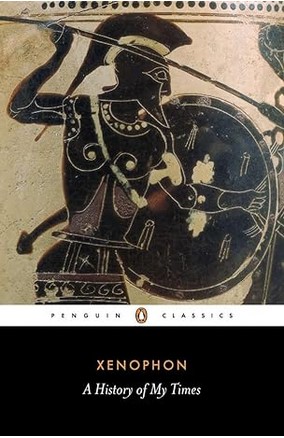
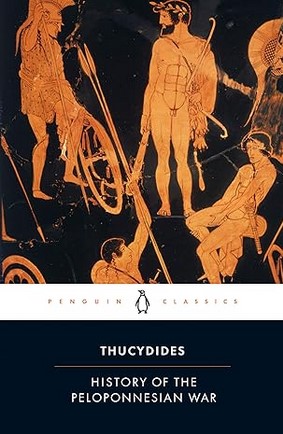
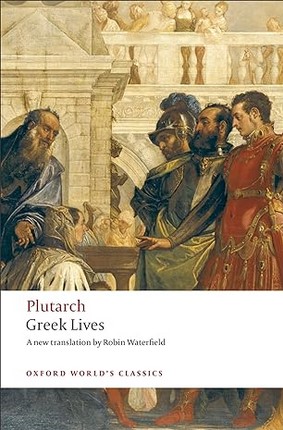
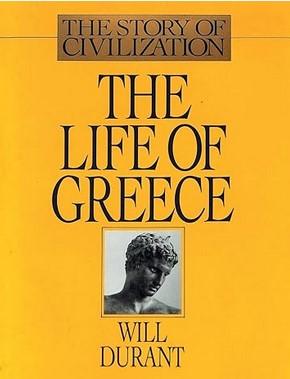


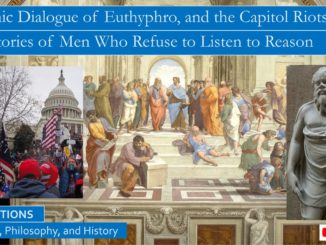
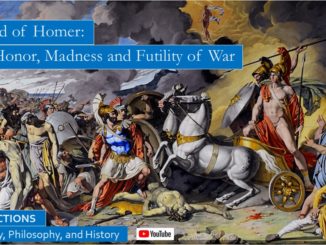
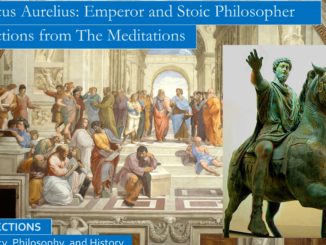
1 Trackback / Pingback